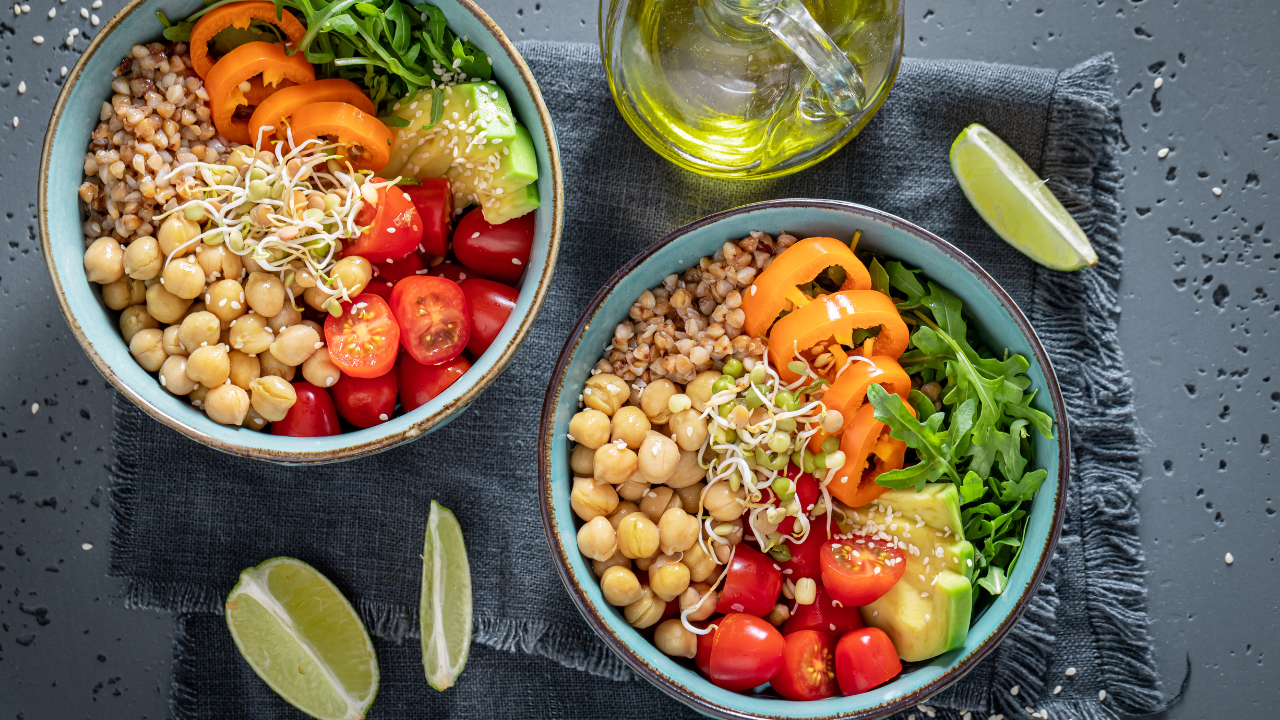Dietitian Reviews the Dirty Dozen and Clean Fifteen
Many influencers, nutritionists, health coaches, and various content creators in between will state you should always choose organic foods because they are healthier for you. In fact, they may even try to scare you into thinking that by telling you that your health is at risk if you don’t spend the extra money on organic foods.
Many of these influencers refer to a organic produce lists known as the Dirty Dozen and Clean Fifteen. These lists come comes out every spring and are claimed to help protect you and your family from pesticides. But is any of this true? Should you be spending your money on organic foods? Is organic any safer or more nutritious than its conventional counterparts?
If you’re new here, hello and welcome! My name is Hannah and I am a non-diet dietitian here to help you improve your relationship with your food and finally find food freedom.
In this blog we will cover:
What does the “organic” label mean?
What is organically-grown produce?
What is the Dirty Dozen?
The problems with the Dirty Dozen
What does the “organic” label mean?
The term “organic” is commonly seen on some food labels or packages and it is a term is based on guidelines from the US Department of Agriculture.
Produce, meat, dairy, beverages, condiments, and processed multi-ingredient foods can all be labeled as organic or made with organic ingredients, but I really want to touch on produce specifically because we are also going to discuss the Dirty Dozen in this post, which refers to organically-grown produce.
What is organically-grown produce?
Produce can be called organic if it’s certified to have grown on soil that had no prohibited substances applied for three years prior to harvest. Prohibited substances include most synthetic fertilizers and pesticides. This does not mean pesticide free or synthetic pesticide free. Organic produce can still have pesticides. The term “organic” basically just means the organic farmers can’t use all the tools in the tool box.
Surprising to many, there are actually similar amounts of pesticide on organic foods compared to conventional foods. This does not mean that you should avoid produce all together just because pesticides are “bad”. There is a very detailed risk assessment that comes along with farmers using pesticides on their crops and as I’ll mention later, the amount of pesticides found on the foods that we eat is far below the threshold of what is harmful.
Pesticides are used for a reason! If pesticides weren’t used in farming, farmers would lose much of the crops that were grown to pests and diseases. It’s also worth noting that organic farming is also less sustainable than conventional farming because it uses more land.
Organic produce is not safer or more nutritious than conventional produce and just because something is organic does not mean that it is any more nutritious. It does probably mean that you paid more for it.
What is the Dirty Dozen?
The Dirty Dozen is a list of 12 fruits and vegetables that the Environmental Working Group (EWG) determine that we should eat organic only due to the level of pesticides. But is this actually evidence based or just a marketing ploy?
The problems with the Dirty Dozen
Americans don’t eat enough fruits and vegetables
According to the CDC, only 1 in 10 Americans eats the recommended amounts of fruits and vegetables. And scare tactics like the Dirty Dozen do not help this cause.
Organically grown produce is known for being much more expensive than conventional, so lower income consumers are less likely to purchase any produce due to misleading messaging perpetuating that organic produce is healthier or safer.
Peer reviewed research published in September 2016 in Nutrition Today shows fear-based messaging tactics used by activist groups and some organic marketers that invoke safety concerns about non-organic produce may be having a negative impact on consumption of fruits and veggies among low income consumers.
The EWG is biased
The Environmental Working Group (EWG), the group that publishes the Dirty Dozen and Clean Fifteen lists, is funded by large organic farms and they cherry pick research in order to fit their agenda. We have no reason to believe that the Dirty Dozen and Clean Fifteen are trustworthy sources.
Pesticide levels of organic produce is not tested
The EWG recommends that you eat organic produce, yet they do not test organic produce. And remember, organic produce crops also use pesticides. So how do they know that the organic fruits and vegetables are any safer if they do not test them?
Conventional produce, on the other hand, is tested and it does not contain a harmful amount of pesticides. In fact, a woman could consume over 400 servings of strawberries or over 18,000 servings of kale in one day without any effect even if the strawberries or kale have the highest pesticide residue recorded for strawberries by the USDA.
The Dirty Dozen also does not take into account how far below the tolerance level these detections are. The residues are detected at levels hundreds to thousands of times below the tolerance levels. Also, organic crops use pesticides and will have pesticide residue, too. But they aren’t even being tested for pesticide residues when these lists are made.
The EWG also does not tell you which pesticides are present in the Dirty Dozen or the quantity of said pesticides. They just tell you the number of pesticides on each fruit or vegetable. Like I always say - you cannot call any food or ingredient toxic or poisonous or unsafe without mentioning the dose at which it becomes toxic, poisonous, or unsafe.
Bottom line
If you are trying to decide between spending $8 on a container of strawberries or not buying them at all - my recommendation is to actually do neither of these and purchase the conventional strawberries if that is more in your budget. The best way to eat fruits and vegetables is the way that you enjoy and is best for your health. Fresh, frozen, canned, organic, conventional - however you can include fruits and vegetables is the best for you.
What are your thoughts on the Dirty Dozen? Leave them in the comments below.

































